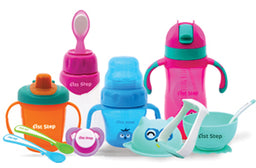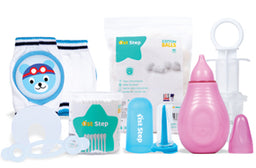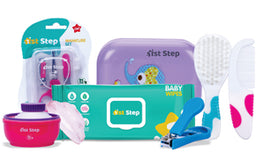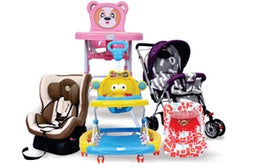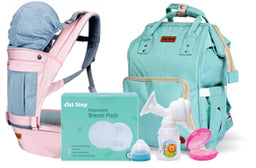Do's & Don’ts During Pregnancy to Follow as a Working Professional
Pregnancy puts new physical demands on the body as it undergoes profound changes. It is, therefore, crucial for working professionals to prioritise self-care and maintain a balanced lifestyle.
Getting adequate rest, nutrition, hydration, and physical activity are foundations for health that should not be compromised due to work commitments. Overall, prioritising self-care and maintaining a balanced lifestyle will help you feel your best throughout this exciting phase.
Do’s & Don’ts During Pregnancy as a Working Professional

Here are the do’s and don’ts during pregnancy for working professionals
|
Do’s at a glance |
Don’ts at a glance |
|
✔️ Make time for regular physical activity ✔️ Get plenty of rest and prioritise sleep ✔️ Practice relaxation techniques ✔️ Drink an adequate amount of water throughout the day ✔️ Avoid excessive consumption of caffeinated beverages ✔️ Include a variety of fruits, vegetables, whole grains, and lean proteins in your meals ✔️ Incorporate foods rich in essential nutrients ✔️ Inform your supervisor and HR department about your pregnancy ✔️ Seek advice and support from fellow working moms ✔️ Join support groups and build a support community |
✔️ Don’t push yourself too hard ✔️ Avoid taking on additional stressful or physically demanding tasks ✔️ Avoid exposure to chemicals, toxins, and harmful substances in the workplace ✔️ Minimise contact with secondhand smoke ✔️ Quit smoking and avoid alcohol consumption ✔️ Minimise caffeine intake and avoid excessive sugar and processed food ✔️Don’t let stress negatively impact your pregnancy ✔️ Avoid working late nights ✔️ Avoid sacrificing sleep for work-related tasks ✔️Avoid overworking; delegate tasks, and ask for help when needed |
Do’s
1. Self-care
Prioritise self-care with regular breaks for movement, deep breathing, and relaxation. Schedule at least two 10-15 minute breaks besides your lunch. Spend this time stretching, walking outside, or practising pranayama (yoga breathing). Deep breathing is very calming for both mother and baby.
2. Stay hydrated
Drink water regularly and limit caffeine. Dehydration can exacerbate fatigue and other discomforts. Carry a water bottle at your desk and sip throughout the day. Limit coffee and tea to one cup in the morning, if needed. Opt for herbal teas instead of caffeinated varieties.
3. Have a balanced and nutritious meal
Eat a nutritious diet with fruits/veggies, whole grains, lean proteins and nutrients like iron and folic acid. Meal prep on weekends or keep easy, non-perishable snacks on hand like nuts, dried fruit and protein bars. If meal planning is complex, rely on something other than vending machines or fast food.
4. Have an open talk with co-workers
Communicate your pregnancy news and any needs to your employer and team. This allows them to provide support and accommodations proactively. Have an honest discussion about workload adjustments as your pregnancy progresses.
5. Get help and offer to help
Build support by connecting with coworkers, especially other working moms. A supportive community makes navigating changes easier. Offer help to others, too, to foster goodwill.
Don’ts
1. Avoid overexerting yourself
Avoid overexerting yourself with tasks beyond your energy levels or physical limits. Listen to early signs of fatigue like headaches or backaches. Pushing past your limits risks complications and unnecessary stress on your body.
2. Don't take on too much work
- Don't take on too much work and put yourself under undue pressure or stress. Workload adjustments may be needed as your pregnancy progresses. Don't be afraid to delegate non-essential tasks.
3. Avoid exposure to workplace hazards
- Avoid exposure to workplace hazards like heavy chemicals, fumes, radiation or long periods of standing. Request ergonomic assessments if needed. Some roles, like healthcare, have more significant exposure risks to consider. Inform your manager about any concerns.
4. Don't stress
- Don't allow stress to overwhelm you without addressing the root causes. Unmanaged stress is unhealthy for both mom and baby. Try relaxation techniques, keeping an organised schedule or saying "no" politely to low-priority tasks.
5. Get quality sleep and stick to a regular schedule
- Get quality sleep and stick to a regular schedule as much as possible. Aim for 7-9 hours per night to feel rested. Sacrificing sleep regularly in favour of late nights at work risks complications and low energy levels.
Workplace Considerations
When you are pregnant, your body undergoes notable changes, like the growth of your baby bump.
- Hence, it is essential to wear comfortable clothing that suits your expanding belly and gives you a professional appearance.
- Request ergonomic equipment if your work requires long hours of sitting, such as a supportive chair and footrest. It ensures proper posture and eases your backaches.
- Take short breaks to stay active in a low-impact way. Even 5 minutes of walk boosts blood circulation.
Tips for a smooth transition to parenthood
Planning will help your transition to parenthood go smoothly. Here are some tips,
Tip #1: Discuss maternity leave options and savings with HR early. Know what's covered and the deadlines for notifying them.
Tip #2: Make financial plans for medical costs and time away from work. Look into insurance coverage and set savings goals.
Tip #3: Train colleagues on covering responsibilities during leave. Cross-train others for your essential job functions.
Tip #4: Use accumulated paid time off before or after the baby arrives. You may want short breaks near your due date or after returning.
Tip #5: Create a birth plan with your partner. Discuss priorities like who will be in the delivery room, circumcision choices, etc.
Tip #6: Prepare your home for the baby. Buy essentials and babyproof, and organise the nursery. Meal prep and freeze batches in advance, too.
Balancing work and family life
Managing both career and family takes commitment to self-care:
☝️Set priorities and realistic schedules with buffers for adjustments. Unforeseen events will occur, so plan flexibility.
☝️Consider flexible hours, telecommuting or part-time if possible. This allows more time for rest or appointments.
☝️Communicate boundaries respectfully with coworkers and managers. Say "no" to requests outside your capacity right now.
☝️Don't feel guilty about using sick or personal days if truly needed. Your health and baby's come before any work obligations.
☝️Delegate tasks you previously handled alone. Accept help graciously when offered by others.
☝️Focus on quality over quantity. Do your best within reasonable limits each day. Perfectionism is not necessary or healthy.
Food Habits During Pregnancy
Being a working professional, you should ensure you consume a balanced diet rich in
- Fruits and vegetables
- Whole grains: brown rice, quinoa, whole wheat bread, etc.
- Lean proteins: tofu, legumes, etc.
- Essential nutrients: eat foods rich in folic acid, iron and calcium
Avoid the following:
- Alcohol
- Smoking
- Excessive caffeine
- Excessive sugar and processed food
1st Step: Your one-stop destination for you and your baby’s needs
At 1st Step, we offer a wide selection of products to meet your baby's needs, from feeding and nursing to grooming and diapering. Our range of products is categorised by price, allowing you to find the best for your budget.
Our products are designed to meet the needs of both babies and mothers, providing the highest quality of care and comfort. We provide the A to Z of baby and mother-care products to support your unexpected needs.
Prestock mother needs, like baby carriers, breast pumps, silicone shields, etc., TODAY!
Conclusion
We hope that the do’s and don’ts of pregnancy would have brought enlightenment to you. It is a joyful time of growth, even for working professionals. You can successfully balance career and motherhood preparations with open communication, self-care priorities, and a supportive team. Always listen to your body's needs above other demands.
Remember that this season will pass. Staying active, eating well and getting sufficient rest will help ensure your health and baby's. Communicating adjustments needed to employers shows them you value your work, too. With planning and a caring community, working during pregnancy can be very manageable.
Frequently Asked Questions (FAQs)
1. Does a stressful job affect pregnancy?
Yes, high stress levels from a demanding job can negatively impact pregnancy. Stress causes the body to produce more cortisol, increasing blood pressure and negatively influencing fetal development. Expectant mothers need to find ways to manage stress levels from work.
2. Is it safe to work full-time during pregnancy?
It can be safe to work full-time during pregnancy for many women if certain precautions are taken. It's best to consult with your medical provider to ensure your job duties don't pose any physical risks.
3. How many hours pregnant women should work?
Pregnant women should limit their work hours to 40 or less per week. Working more than 40 hours can increase stress levels and lead to fatigue, which is unhealthy for the mother and developing baby.
4. How much rest is needed for a pregnant working professional?
A pregnant working professional should aim for 7-9 hours of quality sleep per night. Getting adequate rest is vital for both the mother's and the developing baby's health. Listen to your body and get more rest if needed to avoid fatigue.
5. How do you manage your job while pregnant?
Communicate openly with your employer about your due date and any accommodations you may need. Prioritise self-care with proper nutrition, hydration, rest, and reduced stress. Ask for help from coworkers when required so you can balance your health and work responsibilities.
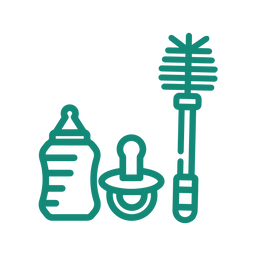 Feeding & Nursing
Feeding & Nursing Safety & Grooming
Safety & Grooming  Bathing & Diapering
Bathing & Diapering Baby Gear
Baby Gear Mother Needs
Mother Needs Muslin Essentials
Muslin Essentials Baby Toys
Baby Toys

